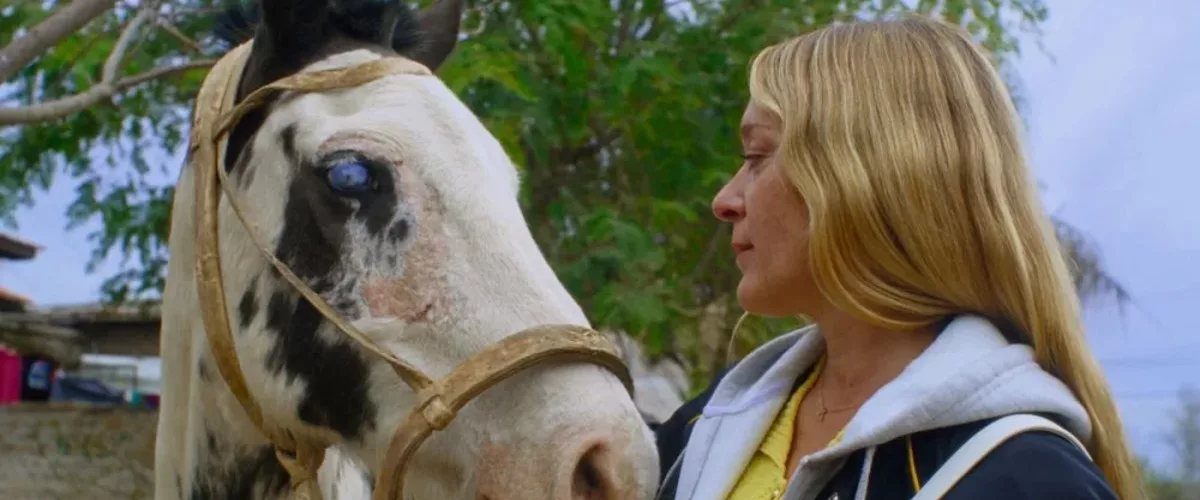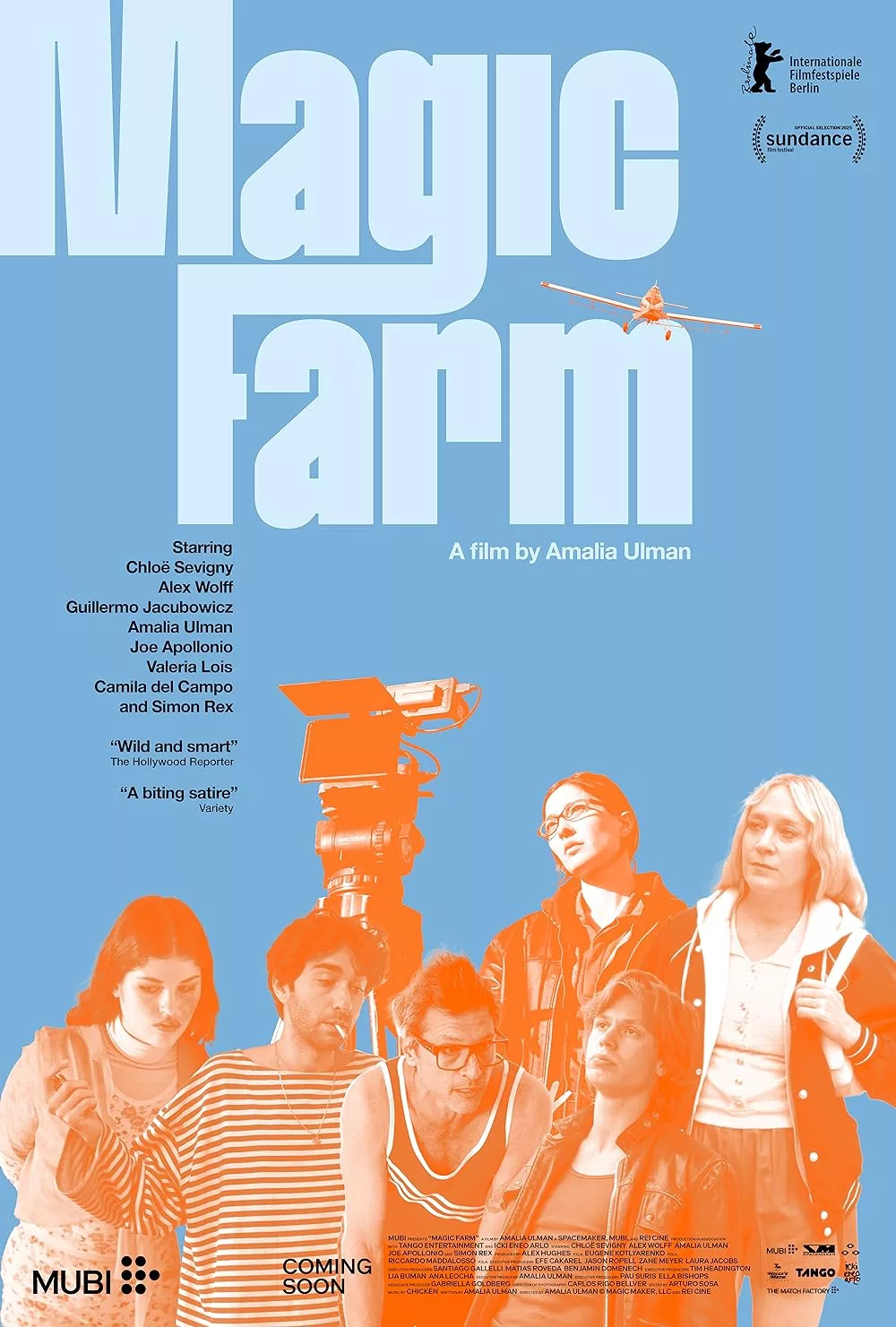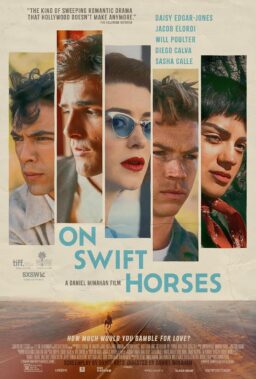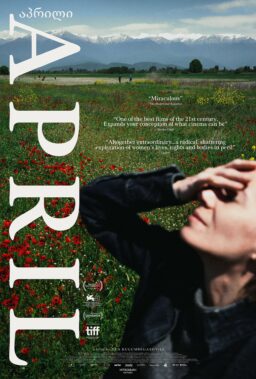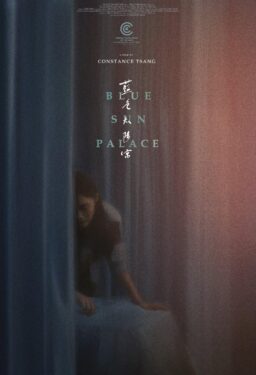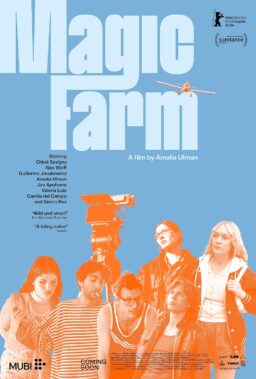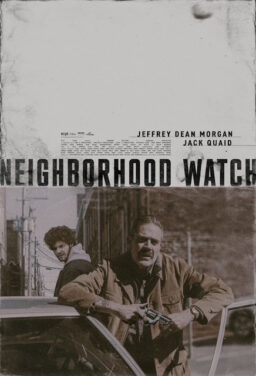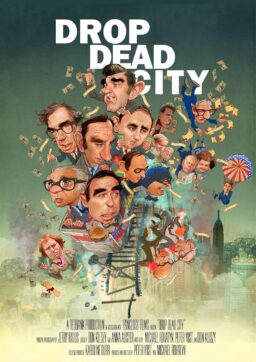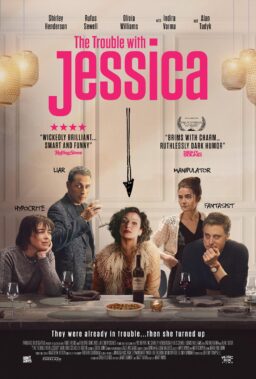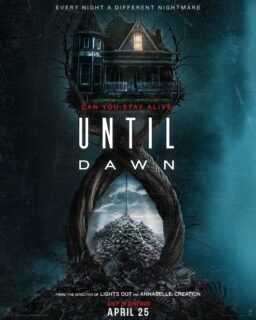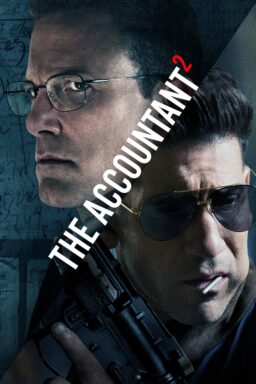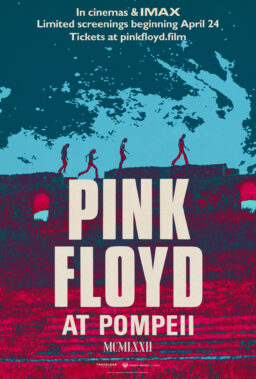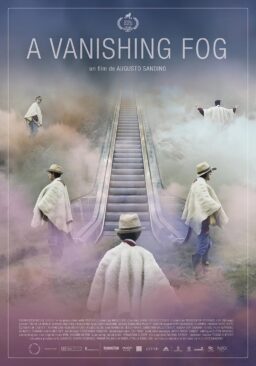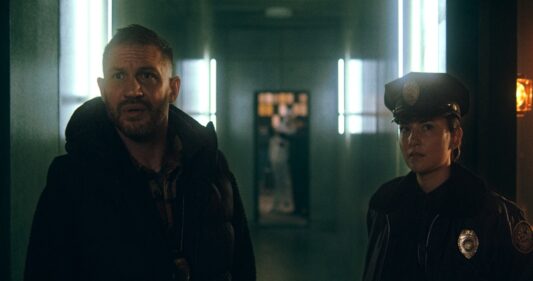It is via our culture, marred by short attention spans and insatiable appetites for easily clipped pieces of content, that writer-director Amalia Ulman routes the pathways of her sophomore feature, “Magic Farm.” Edna (Chloë Sevigny) is the frontwoman of a bumbling coterie of documentarians—Dave (Simon Rex), Edna’s absentee, nicotine-fueled husband; Jeff (Alex Wolff), a sadsack tomcat and inept producer; Justin (Joe Appolonio), the group’s sincere but graceless sound guy; and Elena (Ulman herself), the competent producer and Spanish-speaking translator that keeps the production afloat.
The cabal chronicles eccentric subcultures worldwide for a video channel, from Mexican dancers in notably long, pointy boots to Bolivian teen exorcists. Their latest subject, Super Carlitos, is a bunny suit-wearing musician from San Cristobal—a name for a city that could reside in any number of Latin American countries. But they land in the wrong country, Argentina, due to being at the mercy of Jeff’s ham-fisted “research” (one might guess A being first in the alphabet, and likely at the top of the Google search, was about as far as he went).
Arriving at a small two-room hostel after losing touch with their initial on-the-ground contact, the group is left scrambling without a story. Employing the assistance of the hostel’s clerk (Guillermo Jacubowicz), local woman Popa (Valeria Lois) and her daughter Manchi (Camila del Campo), the production crew embody Ulman’s satire of Americans abroad. Leering with ethnocentric eyes (though lacking the self-awareness to realize it), they endeavor to craft their own myth from scratch, using the locals as pawns in their pursuit of viral media.
“Magic Farm” is eye-catching with its high saturation and punchy editing choices, but the seduction of bright and bold visuals is incompatible with Ulman’s unwieldy script. Her hands are full, and oftentimes clarity slips through her fingers. What’s primary in the narrative is the group’s remarkable disinterest in their own cultural illiteracy, but what fights for the spotlight is a subplot that inserts itself through cyclical, incongruent conversations in the periphery: the village’s children are “born sick,” and youth are dying of cancer at a casual frequency.
Ulman’s desire to showcase that these so-called documentarians are essentially ignoring an actual human story in favor of their own obliviousness is simply not cogent. Awkwardness is not serviceable to the crafting of Ulman’s screenplay, but it does deliver a decently wealthy return by way of the film’s humor. Whether it’s Justin directing Argentine musicians to sound “more Latin” for the project, Edna’s Maison Margiela shoes and Miu Miu bag that she packed for the trip, or Jeff soiling himself on account of drinking tap water, faux pas and farce are in abundance.
The comedy adheres to the “mindless gringos abroad” foundation of Ulman’s script, but even Elena, Argentine though by way of Spain and the group’s only Spanish speaking member, is not completely forgiven. In a chuckle-worthy scene, Popa describes her long ago love affair with a French director. It’s awkward and funny and only Elena understands. But shirking any response to it (as well as any translation of it), she proves to only have interest in what Popa can do for their story (again, their fake one), rather than any extraneous details of the life of the woman holding their project together. She’s there to do a job, of course, but Elena’s complicit fidelity to the manipulation of the village, despite her varied background, feels like a ripe opportunity that never really gets the bite.
Despite being the face of both the group (and the film’s marketing), Sevigny’s presence is scant. Edna’s sneering, irritable temperament is not far out of Sevigny’s wheelhouse when she’s on screen, but is charmingly familiar. It’s Wolff’s pathetic Jeff that takes center stage, from STD-fear to social paranoia, recreational drug use, and a libido that won’t quit. “Magic Farm” hinges on his character for many of the film’s laughs. It’s a successful comedy, much of the time, but also overwrought, as his spotlighting is central to the film’s lack of focus.
There’s a host of meaty ideas in “Magic Farm” worth exploring, but Ulman’s smart choices are commandeered by slack editing. What should be a tight 93-minute runtime feels overlong and overwhelmed by clumsy writing. The spiderweb of red yarn that threads together corporate farming, exploitative media, and general American smugness is visible, but requires squinted eyes. And while there’s certainly promise in Ulman’s stylistic eye and incisive intentions, “Magic Farm” is simply in absence of the executional finesse needed to drive its point home.

